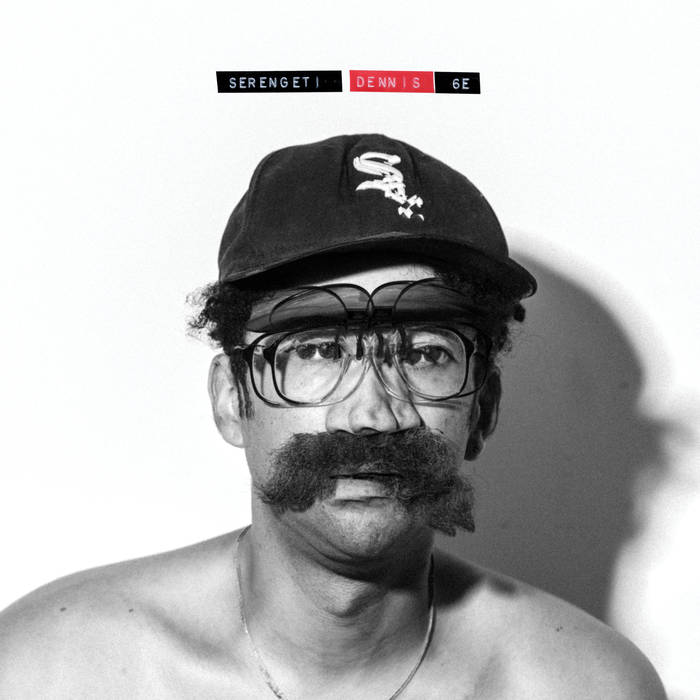Serengeti - Dennis 6e
Written by Chi Chi Thalken on August 30, 2018Back in 2007, Chicago emcee Serengeti released an album called Dennehy. On the album, Serengeti introduced a cast of characters, including someone named Kenny Dennis. We didn’t quite know at the time what we were dealing with, and for a minute it seemed like that was it. After a few years, though, Serengeti started to flesh out the story of this character, a fiftysomething guy from the northwest side of Chicago, with a thick accent and a chip on his shoulder that his music career never took off, and now he’s in a bit of denial about the blue collar life that he’s actually living. Balancing a prolific recording career that saw collaborations with Open Mike Eagle, Sufjan Stevens, Yoni Wolf, and others, Serengeti kept returning to this persona, whether it be for full-length epics like Kenny Dennis III, or shorter dives like the Perfecto EP. After all this time, Serengeti has decided to finally close the saga with Dennis 6e.
If you’re looking for a grand album that’s going hold your hand and walk you through some fun little story that’s going to put a bow on everything, you don’t know Serengeti. For the album, he enlisted the production of Andrew Broder, the Minneapolis musician who records under the name of Fog. His production is amazing, but it is nothing close to anything I’d classify as “pop.” His style is avant-garde, constantly shifting, and just as likely to bring in classical or free jazz elements as it is to experiment with glitches and other noise. This is all happening while Kenny Dennis rhymes in his stream-of-consciousness style, with dense lyrics and a thick accent, all requiring you to lean in and listen very closely to the music. To say this is a headphones album is an understatement. As challenging as this album is, there are plenty of moments spread throughout the album, such as “Don’t Need It,” that give you moments of clarity, where this character is still proclaiming his greatness and having a hard time of letting go of the past and his claims that no one understood his genius, all while this brilliant early’90s electro beat pushes the song forward. It’s this fascinating project, where the main character isn’t all that likeable, but Serengeti has painted his story with so much care and detail, and Broder has given us such a complex soundscape that interacts with the narrative in such interesting ways, it’s easy to become engrossed in the whole album and listen all the way through multiple times.
It’s been a wild ride over the years, and Serengeti has given us a lot of interesting looks at this very specific character. For the last go around with Kenny Dennis, he and Broder continue to challenge us as listeners, with a dense and kinetic album that will draw you in and have you pondering over the lyrics and the production for some time.
| Title: | Serengeti - Dennis 6e |
|---|---|
| Label: | S/R |
| Year: | 2018 |
| Rating: | 9/10 |

